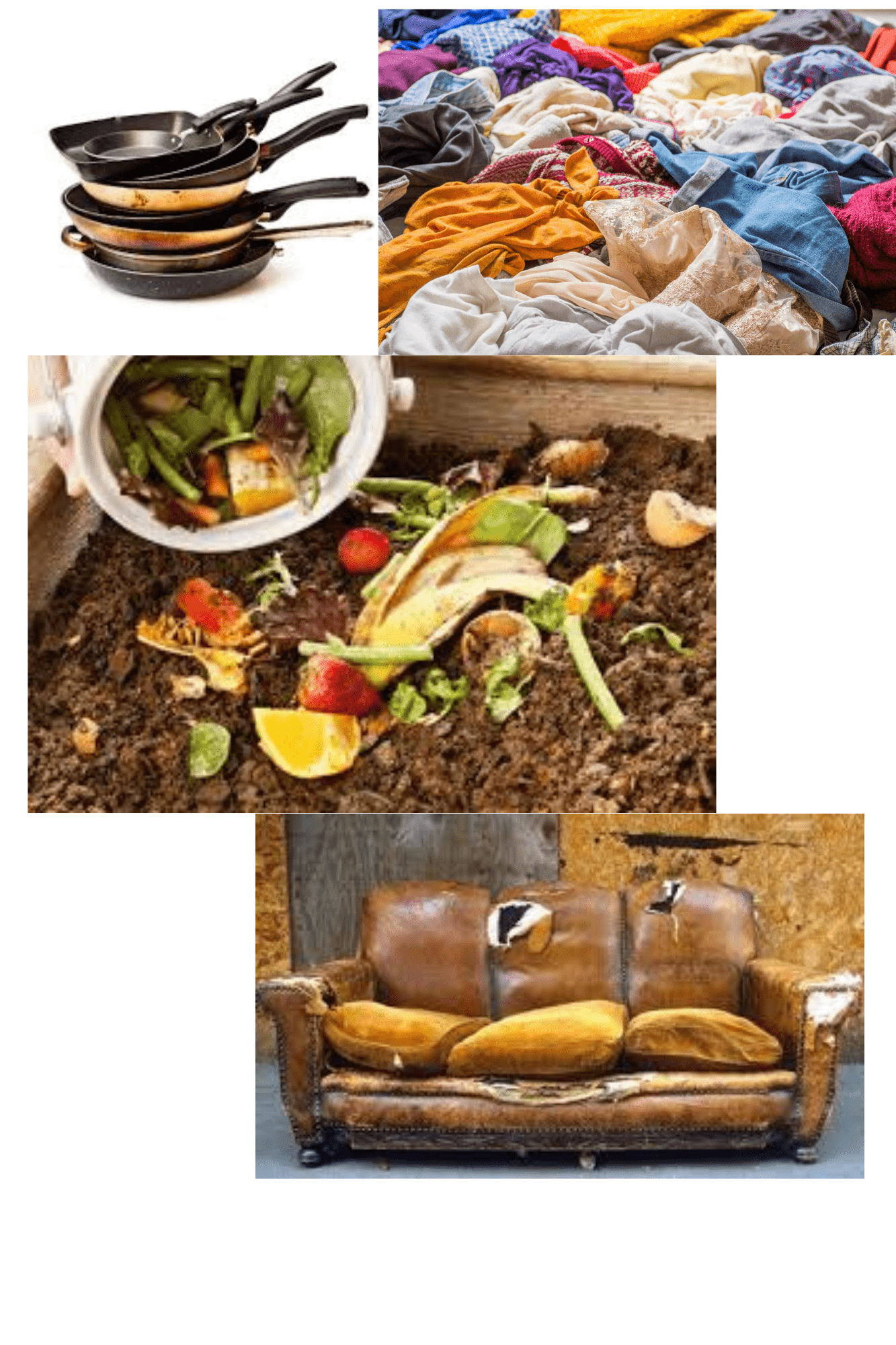Recycling: Other Materials and Programs

Other Recyclable Materials
Now that you know all about the materials that can go into the residential recycling service and what happens to it, what about all of those other items? You know, all those other items that you’ve heard are recyclable but cannot be accepted in curbside recycling? Other materials like pots and pans, scrap wood, food waste and fabric items may be able to be recycled, just not through curbside collection.
Household Items
Many household and clothing items, if they are still in good condition, may be able to be donated or upcycled. If the item is still is good, usable condition, consider reaching out to your local donation program and donate clothing, shoes and furniture. If the item is not still usable as is, it may still be able to be upcycled. Upcycling is when you take older items and use them to create a new product of higher quality and value than the original. An example of upcycling is taking old, used blue jeans, cutting them into usable fabric strips and making a braided throw rug for a new doormat. There are a variety of blogs and websites dedicated to upcycling, some require more skill than others.
Food Waste and Composting
Food waste is another item that is commonly referred to as “recyclable” but cannot go into the curbside recycling program. Scraps like fruit and vegetable scraps, eggshells, and coffee grounds (including some coffee filters) can go into a compost pile or a compost bin. Depending on where you live and how much space you have, you may choose to have a simple compost pile in your backyard that contains food scraps, lawn clippings and leaves. Or you can purchase different sizes and styles of compost bins that will hold your material. As these items break down, they turn into highly useful compost that you can use in your garden or share with neighbors. Compost naturally helps return nutrients to the soil, reducing the need for gardening additives.
Other Programs
There are also a large variety of material specific recycling programs available (a lot of it depends on where you live); some of these items include electronics, batteries, cell phones, motor oil, car parts, and metal items like old pots and pans. Check out your municipal webpage to see if there are any local programs to suit.
For more information, check out your township’s web pages, household hazardous waste programs, or check out the below links: